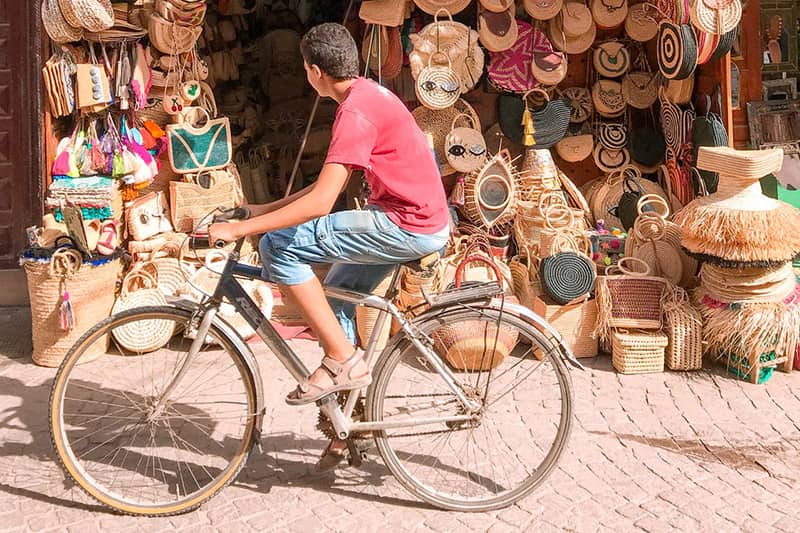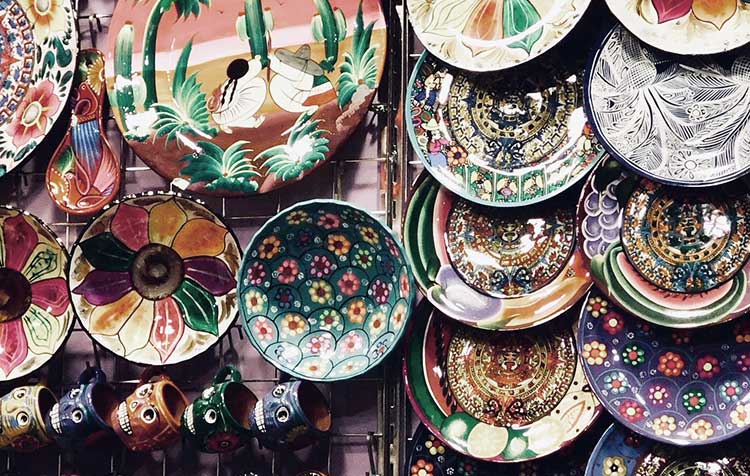Is there actually sustainable souvenirs? And what do you have to consider at all when buying souvenirs from your vacation? Since the trade with cheaply produced or simply illegal souvenirs is an environmentally destructive billion-dollar business, it makes a lot of sense to deal with it before the next vacation and also to educate other people about it.
In this article I would like to show you how buying souvenirs increases environmental problems and how you can preferably bring home meaningful and truly sustainable souvenirs from your vacation.
Tip: If you want more tips about sustainable travel want to get, just look at the linked post.
To what extent can souvenirs harm the environment?
Whether it's shirts or pins that say "I love my destination" or a little ivory necklace -. Vacation souvenirs can be responsible for environmental problems in a wide variety of forms as inconspicuous as they may be at first glance. Here I would first like to give you a brief insight.
- Species extinction and animal suffering: For example, jewelry, shells or combs made of tortoise shell from sea turtles, tiger wine made from tiger bones or the illegal export of live birds of prey as "vacation souvenirs". According to the Customs Criminal Investigation Office, around 580,000 protected plant or animal species or goods made from them were seized in 2015.₁
- Waste of resources: To produce cheap tourism souvenirs, an enormous waste of materials takes place. For example, to produce pendants, magnetic signs or shirts with city names. Moreover, they are often produced in low-wage countries and flown and shipped around the world.
- Waste production: At first, many souvenirs may be considered useful - but once you're back home, they end up in a drawer or even in the trash. In the sense of the Zero Waste Lifestyle is absolutely not.
- Demand determines supply: Those who buy souvenirs ensure that they will continue to be offered. In the case of environmentally harmful or illegal souvenirs in combination with the Mass tourism it's no different, of course - whether you bought them consciously or unconsciously.
As vacationers, we may be partly responsible for illegal activities at the destination. Therefore, when buying souvenirs, we should always question what we are bringing home from a trip.
What to look for when buying souvenirs

Whether as a nice souvenir of the travel experiences or as a small gift to friends and family - I can understand that you don't want to come back from your vacation empty-handed. But if you want to reconcile souvenirs and sustainable living, you should question them. Here are some tips around buying souvenirs on vacation.
Tip: By the way, the targeted avoidance of waste in the form of souvenirs is also an important part of the Zero Waste Travel Tips. Take a look!
Souvenir should create positive memories
A sustainable souvenir is not a soulless knickknack that brings ecological consequences for the local nature and later sinks in a junk drawer or in the yellow bag. It's something special and something that connects you to the experiences on your trip. When you look at it at home, it should bring back memories in you even years after the vacation. Handmade pottery or a unique and locally painted mural that you can take with you rolled up? Refrain from cheap and meaningless knickknacks.
Prefer local, handmade souvenirs
How about essential oils made from incense, for example? Or handmade bowls from FSC-certified wood or spent coconuts? Try to talk to the traders and learn more about how they make them. On the other hand, a tourist hat with "Made in China" written inside - sold in South Africa - is nothing local or personal. I find postcards very personal - and in our digital age also very charming. Memories can be captured very well there.
Protect animals and ecosystems
Lasse Sand, shells and especially animals where they live. Don't come up with strange ideas that will get you into trouble at customs at the latest. Refrain from Furs from panda fur, medicine on tiger bones, carvings from whale bones and pendants with teeth from jaguar.
cruelty to animals report If you notice abuses or observe illegal animal trafficking, you can call the report to PETA. In the article about animal welfare organizations I'll introduce you to PETA and other recommended places to go.
Observe prohibitions
In Egypt, for example, there is a strict export ban on cultural treasures. Before or during your trip, be sure to find out which souvenirs you are allowed to export. Washington Convention on International Trade in Endangered Species of Wild Fauna and Flora CITES which ones you are allowed to bring and which ones you are not. Apart from the fact that you should not bring live souvenirs such as snakes and turtles, or parts of animals such as ivory necklaces, this is also forbidden in many countries of the world. High fines and long prison sentences await you there under certain circumstances.
Tip: Use the WWF Souvenir Guide to find out which souvenirs are environmentally friendly and which ones you should steer clear of.
Sustainable souvenirs protect the environment and create memories

And what if I don't find any suitable, sustainable souvenirs on vacation? Yes, then no one will hold it against you if you don't bring any superfluous garbage for this reason 😉 .
Souvenirs should not be some cheap knickknack that you bring home from your vacation. Above all, they shouldn't cause animal suffering or serious environmental damage in any other way. A truly sustainable souvenir creates memories of unique experiences at your destination or gives your friends back home a taste of local life.
Do you have questions about the sustainable use of souvenirs or your own experiences that you want to share? Then just write a comment below this article.
Stay clean,

PS.: Feel free to take a look at the Nature Travel Blog - there you will find out, for example, why you should should quietly collect garbage once on vacation and how easy it is to implement.
References:
₁ WWF (2016): Cobras, Corals and Caviar - Tourists and the Illegal Species Trade, available at https://mobil.wwf.de/fileadmin/fm-wwf/Publikationen-PDF/Hintergrundpapier-Artenhandel-und-Souvenirs.pdf. [12.03.2020].





